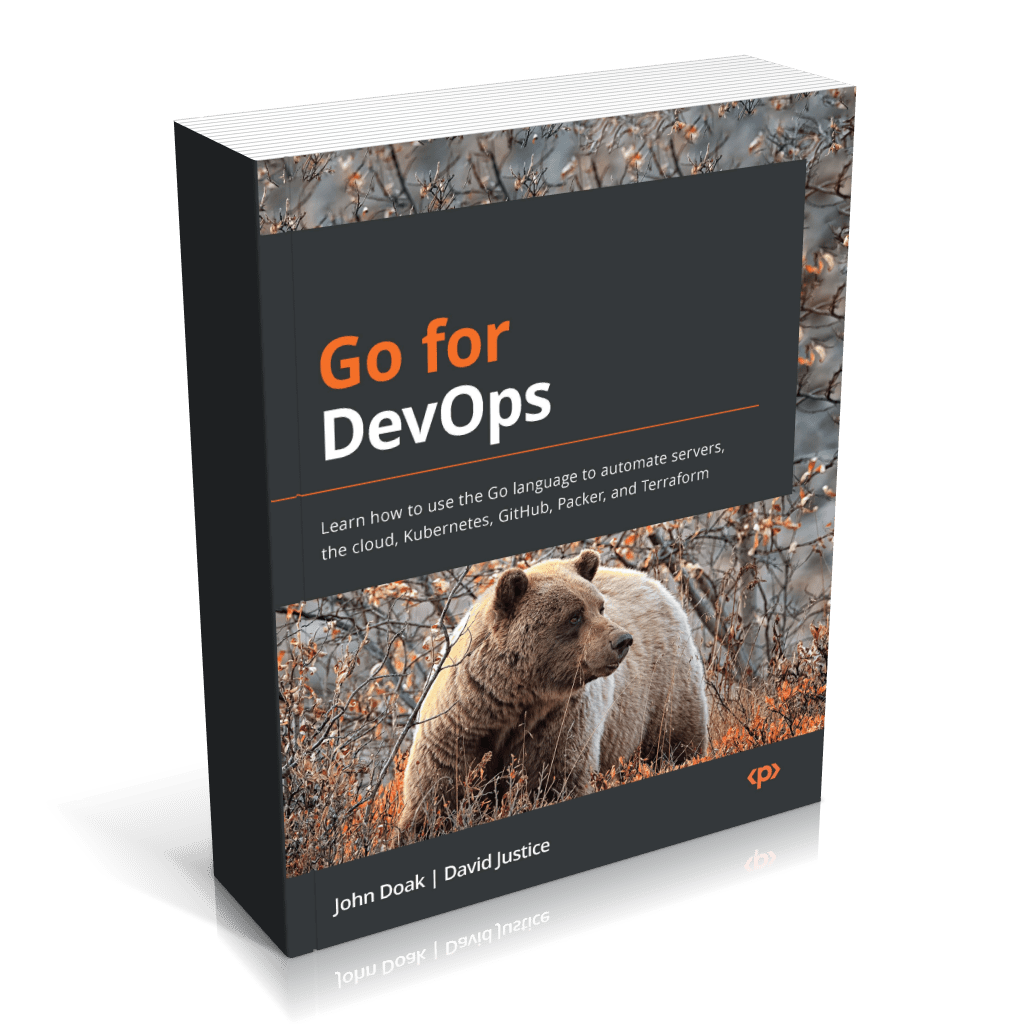Go for DevOps
Discover how to use the Go programming language to create custom DevOps tools with this comprehensive eBook. Get this eBook: “Go for DevOps” ($5 value) for free for a limited time!
Go For DevOps is a comprehensive eBook for developers of all experience levels who are looking to use Go programming language to create custom DevOps tools or to build on existing DevOps tools such as Kubernetes, GitHub Actions, HashiCorp Packer, and Terraform. It covers all of the basics of Go programming from installation to syntax and data structures, and walks readers through the process of creating their own DevOps tooling from scratch.
It also explains how to use the various tools and libraries that are available for Go, such as the Go kit, the go-plugins library, the Go runtime, and the various third-party packages that are built for Go. It discusses the advantages of each of the available DevOps tools and how Go can be used to integrate custom features with those tools. The eBook is ideal for those who are either new to programming or are experienced with another language and want to transition to Go to develop DevOps tools.
What this book covers
- Chapter 1, Go Language Basics, introduces the basics of the Go language.
- Chapter 2, Go Language Essentials, covers essential features of the Go language.
- Chapter 3, Setting Up Your Environment, explains setting up the Go environment.
- Chapter 4, Filesystem Interactions, explores using Go to interact with the local filesystem.
- Chapter 5, Using Common Data Formats, looks at using Go to read and write common file formats.
- Chapter 6, Interacting with Remote Data Sources, explores using Go to interact with gRPC and REST services.
- Chapter 7, Writing Command-Line Tools, shows how to write command-line tools in Go.
- Chapter 8, Automating Command-Line Tasks, addresses leveraging Go’s exec and SSH packages to automate work.
- Chapter 9, Observability with OpenTelemetry, looks at using OpenTelemetry with Go for better instrumentation and alerting.
- Chapter 10, Automating Workflows with GitHub Actions, shows how to use GitHub for continuous integration, release automation, and custom actions using Go.
- Chapter 11, Using ChatOps to Increase Efficiency, covers how to write ChatOps services using Go to provide operational insights and manage incidents effectively.
- Chapter 12, Creating Immutable Infrastructure Using Packer, explains customizing HashiCorp’s Packer to automate virtual machine image creation on AWS.
- Chapter 13, Infrastructure as Code with Terraform, shows how to define your own custom Terraform provider.
- Chapter 14, Deploying and Building Applications in Kubernetes, looks at how to program and extend the Kubernetes APIs.
- Chapter 15, Programming the Cloud, explains using Go to provision and interact with cloud resources.
- Chapter 16, Designing for Chaos, discusses using rate limiters, centralized workflow engines, and policies to reduce blast radiuses.

Go for DevOps Packt eBook
Go for DevOps will provide you with the skills and knowledge to develop custom applications with Go that can be used in an operations environment. You will learn how to configure and deploy these applications, while also managing their performance and reliability.
You will learn how to use logging, monitoring, and alerting to gain insight into your operations environment and detect any issues before they become catastrophic.
You will be able to leverage Go to automate your operations and improve system reliability. By the end of the book, you will be able to build, deploy, and maintain production-grade systems with Go, while also optimizing them to reduce downtime and costs.








There are no reviews yet.